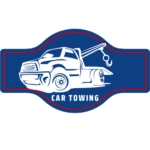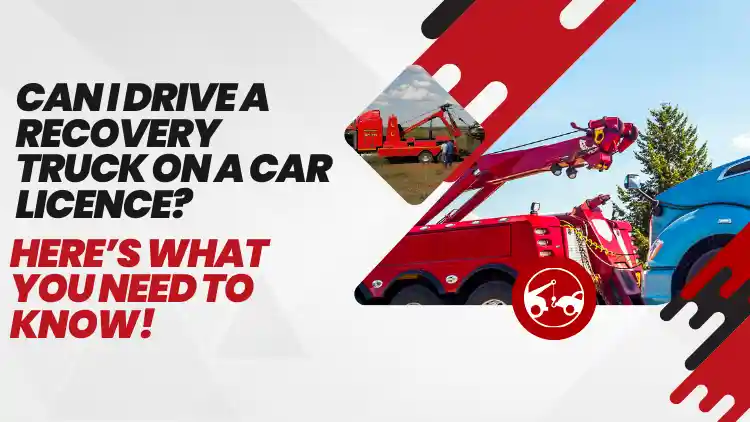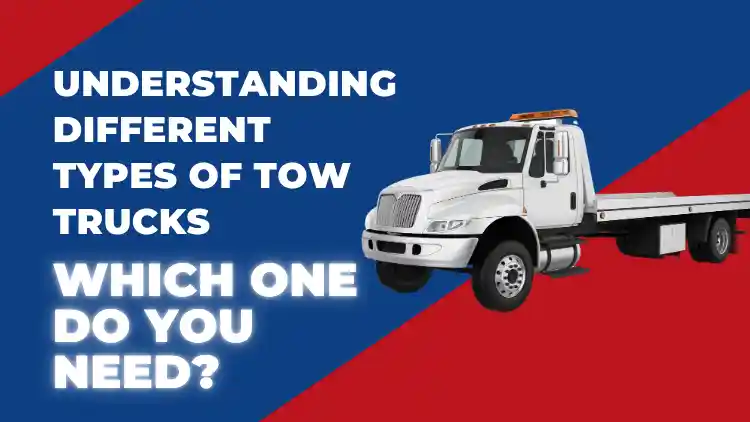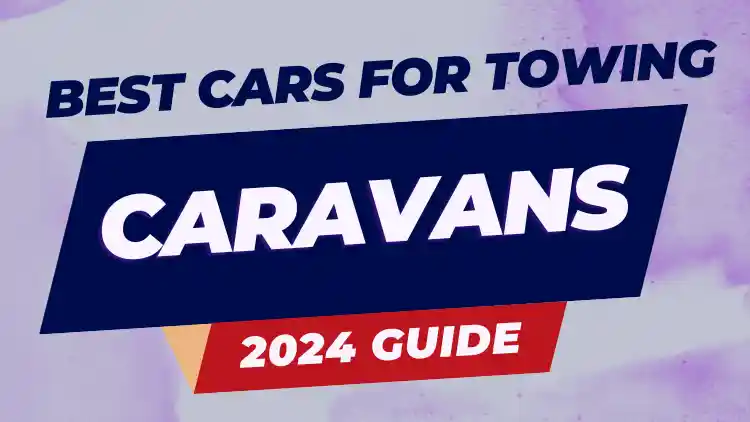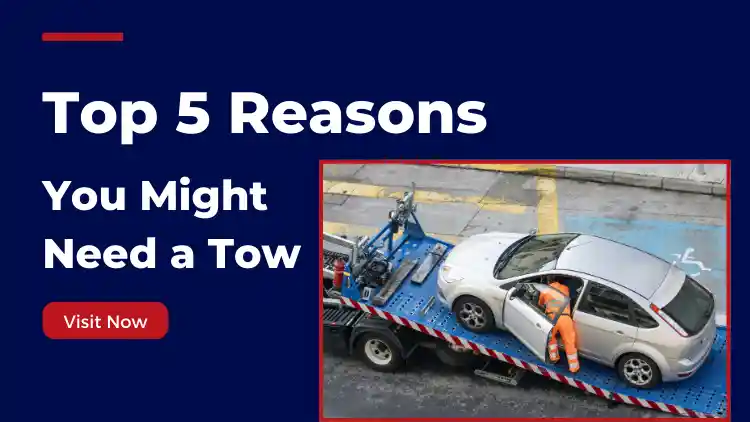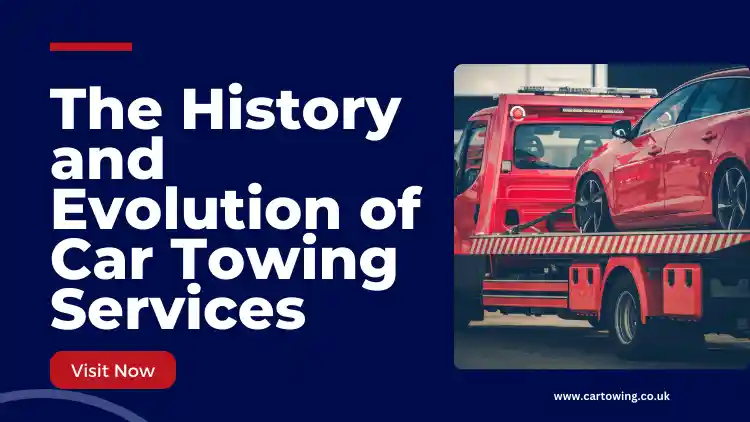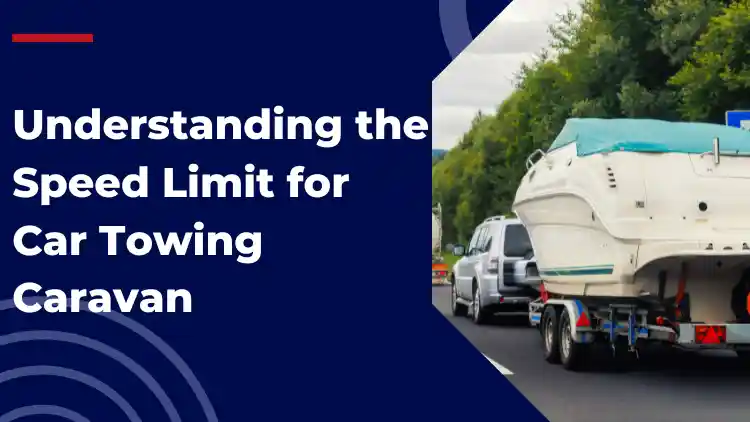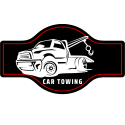Imagine this: you’re on the road, your car breaks down, and you’re stuck with no easy solution in sight. You consider calling for a recovery truck or even think of using one yourself if it’s available. But then it hits you—can i drive a tow truck with a regular license?
This is a question many UK drivers have, especially if they’re not familiar with the rules around heavier vehicles. Whether you’re considering recovery truck driving as a career or just wondering if you could use one to help a friend, understanding licence requirements is key. In this guide, we’ll break down the rules, help clear up any confusion, and answer some common questions about what you can (and can’t) do with a standard car licence in the UK.
Why You Might Need a Recovery Truck (and the Confusion Around Licensing)
Driving a recovery truck can seem straightforward, especially if you have experience handling cars, vans, or SUVs. But recovery trucks, often used for towing or rescuing broken-down vehicles, fall into a different category from typical passenger cars. Here are a few scenarios where someone might need to drive a recovery truck and why licensing confusion exists:
- Helping Friends or Family: Picture this: a family member’s car has broken down on the side of the road. Instead of waiting hours for help, you think about bringing a recovery truck to the rescue. But are you legally allowed?
- Starting a Towing Service: Many people are interested in starting a towing or recovery service due to the demand for roadside assistance. If this is you, then understanding whether your car licence is sufficient is crucial for your business plans.
- Temporary Situations: Even in non-professional settings, you might think about using a recovery truck temporarily, such as moving a friend’s car or handling a personal vehicle breakdown.
In each of these cases, the same question arises: can you drive a recovery truck on a car licence, or does it require a special permit? To get a clear answer, let’s first understand the basics of UK driving licences.
Understanding UK Driving Licences for Different Vehicle Classes
Driving licences in the UK are more complex than many realize, as they’re divided into various categories based on vehicle type, size, and weight. Most drivers in the UK hold a Category B licence, commonly known as the “car licence,” which allows you to operate standard cars and smaller vans. But when it comes to heavier vehicles, like recovery trucks, the rules change.
Here’s a quick rundown:
- Category B Licence: This is your typical car licence, enabling you to drive vehicles weighing up to 3.5 tonnes with up to 8 passenger seats.
- Category C1 Licence: This licence covers medium-sized vehicles between 3.5 and 7.5 tonnes. Most recovery trucks, especially those built for carrying larger vehicles, fall into this category.
If you’re holding only a Category B licence, operating a larger recovery truck without additional permissions could lead to fines or even licence penalties. So, let’s dive deeper into whether or not it’s possible to drive a recovery truck under the standard car licence.
Can I Legally Drive a Recovery Truck on a Car Licence?
The short answer? No, you generally cannot drive a recovery truck on a standard car licence in the UK.
Most recovery trucks exceed the 3.5-tonne weight limit permitted under a Category B licence. As such, driving a recovery vehicle typically requires at least a Category C1 or C licence, depending on the truck’s weight and size.
Why Does This Rule Exist?
The regulations around heavier vehicles, like recovery trucks, aren’t just about weight. It’s also about safety. Recovery trucks carry unique loads, are harder to maneuver, and need better road control due to their size. Operating one safely involves more knowledge and skill than a standard passenger car, so the UK mandates higher-level licences to protect drivers and others on the road.
What Are the Exceptions?
There are a few situations where you might still be able to drive a recovery truck on a car licence, though these cases are quite limited:
- Lightweight Recovery Vehicles: Some lighter recovery trucks may fall just under the 3.5-tonne threshold, making them legal to drive with a car licence. However, these are rare, as most recovery vehicles weigh significantly more.
- Specific Vehicle Modifications: Some vehicles are designed or modified to stay within the 3.5-tonne limit, but it’s essential to confirm the weight with the DVLA or your vehicle provider before assuming you can drive it with a car licence.
For the majority of recovery trucks, though, you’ll need a C1 licence or higher. Now, let’s look at how to get the proper licence if you’re serious about driving a recovery truck.
Options for Legally Driving a Recovery Truck
If you’re looking to get behind the wheel of a recovery truck legally, here are a few options for obtaining the necessary licence:
1. Upgrading to a C1 Licence
The C1 licence allows you to operate vehicles up to 7.5 tonnes. Here’s a step-by-step on how to obtain one:
- Step 1: Book a medical exam. For any higher vehicle class, a medical exam is mandatory.
- Step 2: Apply for the provisional C1 licence through the DVLA.
- Step 3: Complete the theory and practical tests specific to the C1 category.
2. Going for a Category C Licence
If your career involves heavy vehicle operations, you might want to go straight for a Category C licence, which allows you to drive vehicles over 7.5 tonnes.
3. Hiring a Licensed Driver
For those who only need a recovery truck temporarily, hiring a licensed driver can be a practical, short-term solution. Many towing companies offer drivers-for-hire for cases like these, so you can still help with vehicle recovery without needing the licence yourself.
Why You Might Need a Recovery Truck (and the Confusion Around Licensing)
Driving a recovery truck can seem straightforward, especially if you have experience handling cars, vans, or SUVs. But recovery trucks, often used for towing or rescuing broken-down vehicles, fall into a different category from typical passenger cars. Here are a few scenarios where someone might need to drive a recovery truck and why licensing confusion exists:
- Helping Friends or Family: Picture this: a family member’s car has broken down on the side of the road. Instead of waiting hours for help, you think about bringing a recovery truck to the rescue. But are you legally allowed?
- Starting a Towing Service: Many people are interested in starting a towing or recovery service due to the demand for roadside assistance. If this is you, then understanding whether your car licence is sufficient is crucial for your business plans.
- Temporary Situations: Even in non-professional settings, you might think about using a recovery truck temporarily, such as moving a friend’s car or handling a personal vehicle breakdown.
In each of these cases, the same question arises: can you drive a recovery truck on a car licence, or does it require a special permit? To get a clear answer, let’s first understand the basics of UK driving licences.
Understanding UK Driving Licences for Different Vehicle Classes
Driving licences in the UK are more complex than many realize, as they’re divided into various categories based on vehicle type, size, and weight. Most drivers in the UK hold a Category B licence, commonly known as the “car licence,” which allows you to operate standard cars and smaller vans. But when it comes to heavier vehicles, like recovery trucks, the rules change.
Here’s a quick rundown:
- Category B Licence: This is your typical car licence, enabling you to drive vehicles weighing up to 3.5 tonnes with up to 8 passenger seats.
- Category C1 Licence: This licence covers medium-sized vehicles between 3.5 and 7.5 tonnes. Most recovery trucks, especially those built for carrying larger vehicles, fall into this category.
If you’re holding only a Category B licence, operating a larger recovery truck without additional permissions could lead to fines or even licence penalties. So, let’s dive deeper into whether or not it’s possible to drive a recovery truck under the standard car licence.
Can I Legally Drive a Recovery Truck on a Car Licence?
The short answer? No, you generally cannot drive a recovery truck on a standard car licence in the UK.
Most recovery trucks exceed the 3.5-tonne weight limit permitted under a Category B licence. As such, driving a recovery vehicle typically requires at least a Category C1 or C licence, depending on the truck’s weight and size.
Why Does This Rule Exist?
The regulations around heavier vehicles, like recovery trucks, aren’t just about weight. It’s also about safety. Recovery trucks carry unique loads, are harder to maneuver, and need better road control due to their size. Operating one safely involves more knowledge and skill than a standard passenger car, so the UK mandates higher-level licences to protect drivers and others on the road.
What Are the Exceptions?
There are a few situations where you might still be able to drive a recovery truck on a car licence, though these cases are quite limited:
- Lightweight Recovery Vehicles: Some lighter recovery trucks may fall just under the 3.5-tonne threshold, making them legal to drive with a car licence. However, these are rare, as most recovery vehicles weigh significantly more.
- Specific Vehicle Modifications: Some vehicles are designed or modified to stay within the 3.5-tonne limit, but it’s essential to confirm the weight with the DVLA or your vehicle provider before assuming you can drive it with a car licence.
For the majority of recovery trucks, though, you’ll need a C1 licence or higher. Now, let’s look at how to get the proper licence if you’re serious about driving a recovery truck.
Options for Legally Driving a Recovery Truck
If you’re looking to get behind the wheel of a recovery truck legally, here are a few options for obtaining the necessary licence:
What License Do You Need to Drive a Tow Truck?
Discover the licensing requirements for driving a tow truck in the UK. Learn about the specific categories, qualifications, and endorsements needed to operate a tow truck legally and safely.
What License You Need to Drive a Tow Truck?
To drive a tow truck in the UK, you need the appropriate driving license based on the type and weight of the vehicle. For standard tow trucks, a Category B license (a regular car license) may suffice if the vehicle and towed load do not exceed 3,500 kg in total.
However, if the combined weight surpasses this limit, a Category C1 or C license, which allows you to operate medium to heavy vehicles, is required. Additionally, you may need a Driver Certificate of Professional Competence (CPC) if you’re towing commercially. It’s crucial to understand the specific licensing requirements to ensure legal and safe towing operations.
1. Upgrading to a C1 Licence
The C1 licence allows you to operate vehicles up to 7.5 tonnes. Here’s a step-by-step on how to obtain one:
- Step 1: Book a medical exam. For any higher vehicle class, a medical exam is mandatory.
- Step 2: Apply for the provisional C1 licence through the DVLA.
- Step 3: Complete the theory and practical tests specific to the C1 category.
2. Going for a Category C Licence
If your career involves heavy vehicle operations, you might want to go straight for a Category C licence, which allows you to drive vehicles over 7.5 tonnes.
3. Hiring a Licensed Driver
For those who only need a recovery truck temporarily, hiring a licensed driver can be a practical, short-term solution. Many towing companies offer drivers-for-hire for cases like these, so you can still help with vehicle recovery without needing the licence yourself.
Additional Factors to Consider Before Driving a Recovery Truck
Beyond licensing, there are a few other things to think about before jumping into a recovery truck:
- Insurance Requirements: Operating a recovery vehicle often requires special insurance. Check with your provider to ensure you’re fully covered.
- Safety Training: Driving a recovery truck involves skills like managing heavy loads, towing correctly, and navigating safely. Consider taking a course in vehicle recovery to improve your confidence and safety on the road.
- Regular Maintenance: Recovery trucks face tough wear and tear, so regular maintenance is vital. Checking brakes, tyres, and hydraulics (if present) is essential before every job.
By keeping these factors in mind, you’ll ensure a safer experience not only for yourself but also for others on the road.
Conclusion
So, can you drive a recovery truck on a car licence? In most cases, no. Driving a recovery vehicle safely and legally in the UK typically requires a Category C1 or C licence, depending on the truck’s weight. While there may be rare exceptions, it’s essential to verify your vehicle’s specific requirements to avoid penalties.
For those interested in using a recovery truck for professional or personal purposes, upgrading to the correct licence is worth the time and effort. Remember, proper training, insurance, and regular maintenance are key to a safe experience. Whether you’re starting a towing business or just lending a helping hand, knowing the rules around recovery trucks will keep you prepared for the road ahead.
What Licence Do I Need to Drive a Recovery Truck?
The licence required to drive a recovery truck depends on the vehicle’s weight and intended use:
Category B Licence (Car Licence):
You can drive a recovery truck with a gross vehicle weight (GVW) of up to 3,500 kg. This is suitable for smaller recovery trucks or vehicles operating within the standard weight limit.
Category C1 Licence:
If the recovery truck has a GVW between 3,500 kg and 7,500 kg, you’ll need a Category C1 licence. This is ideal for medium-sized recovery vehicles.
Category C Licence:
For recovery trucks exceeding 7,500 kg, a full Category C licence is necessary. This licence allows you to operate heavy vehicles used in commercial towing or recovery operations.
Driver Certificate of Professional Competence (CPC):
If you’re driving a recovery truck for commercial purposes, you may also need a CPC qualification to ensure you meet professional driving standards.
Always confirm the weight of the recovery truck and check specific legal requirements before driving.
